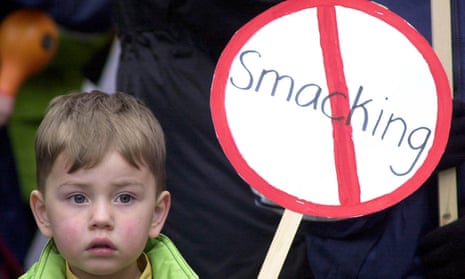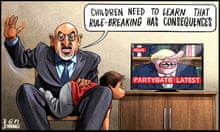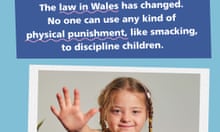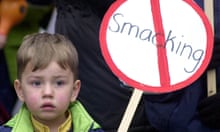The education secretary has rejected calls for a ban on parents smacking children in England, revealing that his wife has occasionally given their daughter a “light smack on the arm”.
Nadhim Zahawi said he did not want to “end up in a world where the state is nannying people about how they bring up their children”, but senior Conservative MPs called for a parliamentary debate on the issue after the children’s commissioner for England, Dame Rachel de Souza, supported a ban.
De Souza said she wanted England to follow the examples set by Wales and Scotland in banning adults from hitting children. A ban was supported by experts and charities, including the NSPCC, and by the Labour and Liberal Democrat leaders.
Zahawi said: “I’ve got a nine-year-old, and I don’t think I’ve ever smacked her but I think her mother, on occasion, has felt a need for a light smack on the arm, if she’s completely naughty and misbehaving.
“But even when that happens, it has to be on a very, very rare occasion and not something that we would certainly, as parents, want to do very often. It’s much better to sit down and communicate with your child and discuss behaviour and discuss what positive behaviour looks like.”
But Robert Halfon, the Conservative MP who chairs the education select committee, said De Souza was “courageous and right to raise these matters”.
“If I walked down to the frontbench and smacked the leader of the House [of Commons] I would be possibly done for assault. If I smacked a dog I would be possibly done for cruelty to that dog.
“Yet, when we talk about the smacking of children, we say that it’s a nanny state if we question this,” Halfon said.
Halfon said that while he was not calling for an outright ban, “I do think that we need to discuss these matters very carefully and have a debate” in parliament after the Queen’sspeech next month.
The need for a debate was backed by Mark Spencer, the Conservative MP for Sherwood and a former chief whip.
“I think it is something which is worthy of debate, I think colleagues across the house would want to engage with that debate,” Spencer said.
“I will say on a personal level, I do think that parents have the right to chastise their children in a way in which they see fit. But there clearly is a line where that stretches over into abuse.”
Wales’s ban on using corporal punishment – such as smacking, hitting, slapping and shaking – against a child came into effect on 21 March. Jersey was the first part of the British Isles to introduce a smacking ban, in April 2020. Scotland has had a ban in place since November 2020.
De Souza said: “I think we’ve got a great opportunity to look, watch it, as it’s embedded [in Wales], and I would be supportive – certainly, from what I’ve seen so far – I would be supportive if our government decided to do the same.”
Joanna Barrett, the NSPCC’s associate head of policy, said: “Children are some of the most vulnerable members of our society and deserve more, not less, protection from violence than adults so we welcome the children’s commissioner’s support for a change in the law.
“We know from our recent poll that public attitudes to physical punishment are changing, which shows how Westminster are behind the curve on this issue.”
Prof Yvonne Kelly, of University College London’s department of epidemiology and public health, said credible research over the last 20 years showed the harm done to children by smacking and other physical punishments.
“The evidence is consistent and robust,” she said. “Physical punishment is not an effective way of teaching children anything and has only harmful and damaging effects.”
Kelly said 62 countries had a ban on physical punishment being used against children, with a further 27 committed to doing so.
New Zealand banned smacking in 2007 and has recorded a steep fall in severe and minor assaults against children since then.








